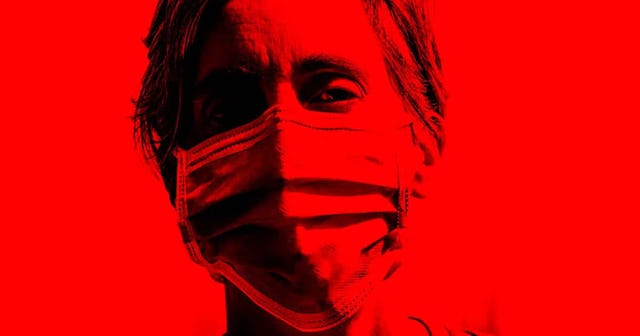Quarantine Fatigue Is Literally Killing Us

We rang in the new year with a new decade. New hopes and dreams. New goals and resolutions. We never fathomed a pandemic would turn our lives upside down. People have spent months away from family, friends, and coworkers. Sure, giving up social distancing might be the easiest (and most socially acceptable) thing to do right now, but it’s killing us.
Compared to other countries, U.S. cases are rising at the fastest pace we have seen yet. It’s like we have given up. CNN talks about caution fatigue as an issue of how our brains are wired. In the beginning, our brain was wired to see COVID-19 as a new threat, motivating us to take precautions to stay safe. As the days, weeks, and months go by, our brains don’t perceive the information as new. The threats become less severe in our minds.
Although our brains are wired for survival, what makes humans the greatest species on the planet is that we have higher-level thinking processes. We can change our behavior despite our survival instincts. We can choose to do better. The choices we make today impact how this virus is going to play out.
It didn’t take long for Americans to jump back into normal behavior. By Memorial Day, many decided that fighting COVID-19 was over. It’s almost as if Americans decided that the virus can’t be controlled, so why bother? We know better. We know that personal behavior is largely linked to the spread of this virus. In fact, we know exactly what do to control it and too many people are blatantly ignoring it. New York was a great model of how to “flatten the curve.” Now, months later, the rest of the country is peaking when they had a model of how to control the spread right in front of them.
Lately, every day we woke up to the news that the United States had a “record-high number of cases” the previous day. Every single day was a record-breaking day. Not only that, but many states are nearing their capacity for hospital beds. It’s scary and exhausting to hear this news. It’s hard to move forward every day. But we must work together if we want any semblance of normalcy. Even more important, we can save a lot of lives by simply altering our daily habits, and understanding this “new normal” is just temporary.
The U.S. is still dealing with the effects of Memorial Day parties, travel, and lax precautions. We haven’t even scratched the surface of dealing with the July 4th events. Right now we top every country in the world with the number of cases and deaths. We can do better. We need to do better if we want to survive this.
If you are struggling with quarantine fatigue, here are a few things to remember:
Just Because You Didn’t Get It By Now – Doesn’t Mean You Won’t
Everyone is still vulnerable to getting COVID-19. Certain groups of people are more vulnerable, but positive cases and deaths are seen across all ages, races, and gender. The hallmark traits of this virus are: how contagious it is and how quickly it spreads. Just because you feel COVID is old news, doesn’t mean it’s not spreading at record-breaking numbers. It is. In fact, you are probably at an increased chance of getting it as people continue to travel, have parties, and become lax with precautions.
Socialize Safely
The lack of social interaction is extremely difficult. But depending on where you live, socializing can be done safely. Choose a few trusted people who haven’t traveled, who wear masks in public, and spend most of their time at home. The safest way to socialize is outside, maintain a physical distance of six feet, and wear a mask yourself. This isn’t ideal for most people. Everyone wants to hug parents, and grandparents, go out to bars and restaurants. Our need for returning to normal too soon has proved to be deadly.
Stay Vigilant With Precautions
Wear a mask, wash your hands, and physical distance. These steps have “flattened the curve” in many places. Somehow wearing a mask has become a political statement instead of being about public health. Wear a mask for young children who can’t. Wear a mask for disabled people who might not be able to. Wear a mask for the nurse who just spent 12 grueling hours on her feet helping the sick. Wear a mask for the World War II veteran who is vulnerable and would have a very difficult time recovering from COVID-19.
Reduce Information Overload
Consuming too much media can desensitize you to the threat of the virus, therefore making it easier to become more relaxed with precautions that can keep you healthy. However, ignoring the news can also be harmful. Information is power. Choose a few trusted news sources and limit your time in the media. It’s important to keep up with what is going on so you can do your part. As we see a steady rise in cases, we need to work together. COVID doesn’t go away if we just simply ignore it.
The U.S. Needs To Come Together
You can still live your life and acknowledge COVID-19 as a major public health threat. This can be done without being consumed with anxiety. It’s about making choices. It’s about making minor adjustments for the greater good. It’s “we,” not “me.” Americans can’t afford to have an “it can’t happen to me attitude,” because it happened to 3.2 million people. Over 138,000 Americans (to date) have lost their lives. It happened to them.
Let’s all come together and do our part.
This article was originally published on